Out of Crisis
Great Barrington Books
Bringing the old and new together in the spirit of W. E. B. Du Bois

An imprint edited by Charles Lemert

Titles Available
Keeping Good Time: Reflections on Knowledge, Power, and People
by Avery F. Gordon (2004)
Going Down for Air: A Memoir in Search of a Subject
by Derek Sayer (2004)
The Souls of Black Folk, 100th Anniversary Edition
by W. E. B. Du Bois, with commentaries by Manning Marable, Charles Lemert, and Cheryl Townsend Gilkes (2004)
Sociology After the Crisis, Updated Edition
by Charles Lemert (2004)
Subject to Ourselves, by Anthony Elliot (2004)
The Protestant Ethic Turns 100
Essays on the Centenary of the Weber Thesis
edited by William H. Swatos, Jr., and Lutz Kaelber (2005)
Postmodernism Is Not What You Think
by Charles Lemert (2005)
Discourses on Liberation: An Anatomy of Critical Theory
by Kyung-Man Kim (2005)
Seeing Sociologically: The Routine Grounds of Social Action
by Harold Garfinkel, edited and introduced by Anne Warfield Rawls (2005)
The Souls of W. E. B. Du Bois
by Alford A. Young, Jr., Manning Marable, Elizabeth Higginbotham, Charles Lemert, and Jerry G. Watts (2006)
Radical Nomad: C. Wright Mills and His Times
by Tom Hayden with Contemporary Reflections by Stanley Aronowitz, Richard Flacks, and Charles Lemert (2006)
Critique for What? Cultural Studies, American Studies, Left Studies
by Joel Pfister (2006)
Social Solutions to Poverty, Scott Meyers-Lipton (2006)
Everyday Life and the State, by Peter Bratsis (2006)
Thinking the Unthinkable: An Introduction to Social Theories
by Charles Lemert (2007)
Between Citizen and State: An Introduction to the Corporation
by David A. Westbrook (2007)
Politics, Identity, and Emotion, by Paul Hoggett (2009)
Out of Crisis: Rethinking Our Financial Markets, by David A. Westbrook (2010)
Out of Crisis
Rethinking Our Financial Markets
David A. Westbrook
First published 2010 by Paradigm Publishers
Published 2016 by Routledge
2 Park Square, Milton Park, Abingdon, Oxon OX14 4RN
711 Third Avenue, New York, NY 10017, USA
Routledge is an imprint of the Taylor & Francis Group, an informa business
Copyright 2010, Taylor & Francis.
All rights reserved. No part of this book may be reprinted or reproduced or utilised in any form or by any electronic, mechanical, or other means, now known or hereafter invented, including photocopying and recording, or in any information storage or retrieval system, without permission in writing from the publishers.
Notice:
Product or corporate names may be trademarks or registered trademarks, and are used only for identification and explanation without intent to infringe.
Library of Congress Cataloging-in-Publication Data
Westbrook, David A.
Out of crisis : rethinking our financial markets / David A. Westbrook.
p. cm. (Great Barrington books)
Includes bibliographical references and index.
ISBN 978-1-59451-726-6 (hardcover : alk. paper) ISBN 978-1-59451-727-3 (pbk. : alk. paper)
1. Financial crisesUnited StatesHistory21st century. 2. FinanceGovernment policy
United StatesHistory21st century. I. Title.
HB3722.W47 2010
332.0973dc22
2009036129
Designed and Typeset by Straight Creek Bookmakers.
ISBN 13: 978-1-59451-726-6 (hbk)
ISBN 13: 978-1-59451-727-3 (pbk)
Contents
O NE SHOULD SYMPATHIZE WITH THE JOURNALISTS WHO STRUGGLE TO PROVIDE stories about at least the most striking of the facts in which we seem at risk of drowning, the numbers that materialize and vanish and rematerialize in a different form. What can be meant by payments reckoned in tens of billions, millions upon millions of unemployed people, trillions of dollars of debt and growth (certainly more than the velocity of money supply, whatever that really is) that might or might not have otherwise happened? Surely the transformation of our world, but perhaps one could be a bit more specific? And so we often read the life and times of the pundit, which can be amusing and even insightful, if the pundit is a good writer.
Another approach to confronting the confusion of our news is historical narrative, usually strongly chronological and explicitly, simplistically, causal. Just months after the crisis began, a stream of books explaining what really caused the crisis began to flow; the stream has become a flood with no signs of abating. Such accounts can be delivered at whatever level of detail the reader can tolerate, and we may rest assured that doctoral dissertations on the causes of this crisis will be written by people who are now infants. Narrative and its pitfalls are both further discussed and modestly indulged in what follows, but on the whole this book despairs of telling one convincing story with which blame can be assigned and from which noble policy flows, and so another approach to rethinking our crisis must be found.
A somewhat more muscular approach is suggested by the great mid-twentiethcentury corporation law scholar and man of affairs Adolf Berle, who was said to have aspired to be the Marx of the capitalist classes. It would be nice to have a scientific grand theory, with a dynamic akin to class struggle, to explain or at least articulate what has happened to our financial markets over the past few years. But this is not the nineteenth century, and monolithic theories of complex history seem sophomoric or even authoritarian. What might still be possible and even more useful, however, is to work more like some Walter Benjamin of the capitalist classes. Benjamin was the great interpreter of, among other things, Bert Brecht, who wrote Threepenny Opera, a scathing attack on capitalism that was a huge hit. That is, the current financial crisis provides us with an opportunity for the critical analysis of established patterns of thought, a chance to ask how are we to (re)think what began as a housing bubble, went through a period as a financial crisis, which quickly became a credit crisis, or even a liquidity crisis, and finally a recession, with talk of depression in the air. Instead of narrative, this book is an exercise in interpretation, what might be read as a critique of the intellectual history of the present, that asks how we are to engagethink aboutthe largest financial crisis in several generations and, by extension, political economy more generally.
I teach business and international topics in a law school, and this book is an internal critique of the perspective of financial policy elites. This perspective is expressed in various ways and called different things, including simply economic or financial, law and economics, liberal or neoliberal, Chicago school, Washington consensus, deregulatory, and so forth. The roots of this perspective are oldone might plausibly argue going back to the development of accounting and/or probability in the late Middle Agesbut the modern finance with which this book is concerned is probably best understood as a result of development of more scientific (and quantitative) forms of economic discourse after World War II. It is associated especially with the development of portfolio theory since the 1950s, economic analysis of law since the 1960s and 1970s, deregulation since the 1970s, financial engineering since the 1970s but gaining speed throughout the 1980s and 1990s, advances in entity architecture since the 1970s over roughly the same time frame, and risk management (often based on both the new financial instruments and special-purpose entities) over the last few decades, but especially since the 1990s, and structured finance in the 1990s and the early years of this decade. As this partial yet long listing of intellectual sources and expressions suggests, modern finance is widespread and diffuse, a powerful yet somewhat unarticulated way of looking at the world and doing policy. It is, in short, both an intellectual tradition and an ideology.


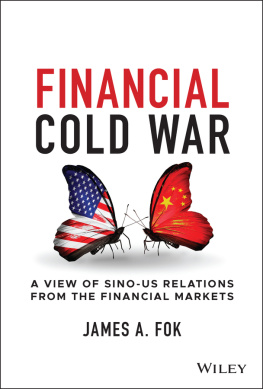
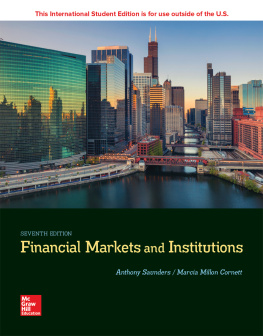
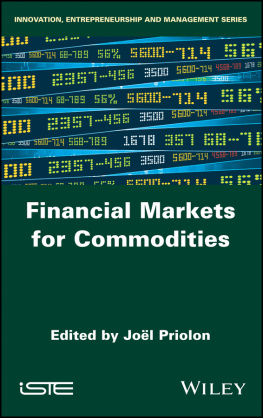
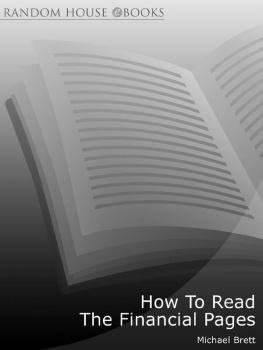
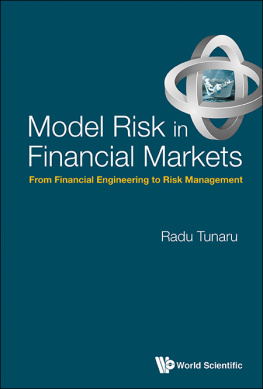
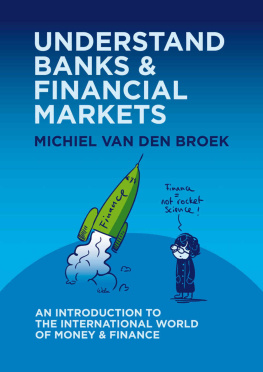
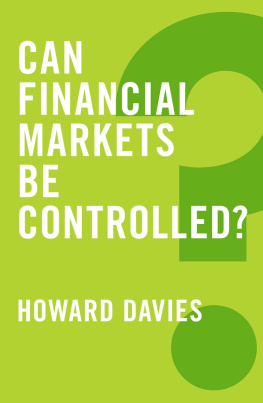
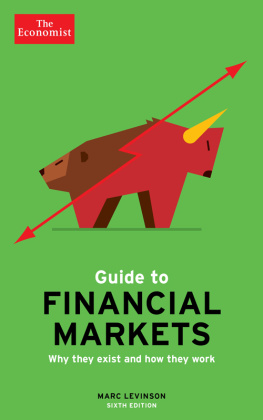
 An imprint edited by Charles Lemert
An imprint edited by Charles Lemert 